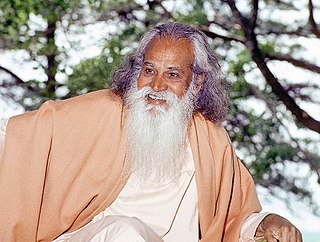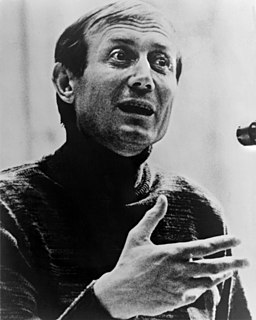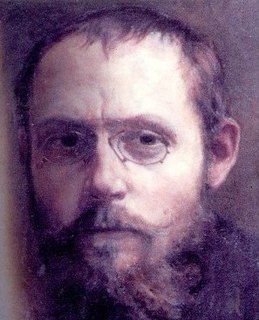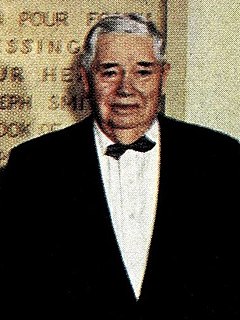A Quote by Swami Vivekananda
Man never dies, nor is he ever born; bodies die, but he never dies.
Related Quotes
What is it that dies? A log of wood dies to become a few planks. The planks die to become a chair. The chair dies to become a piece of firewood, and the firewood dies to become ash. You give different names to the different shapes the wood takes, but the basic substance is there always. If we could always remember this, we would never worry about the loss of anything. We never lose anything; we never gain anything. By such discrimination we put an end to unhappiness. (118-119)
Weakness is a great thing, and strength is nothing. When a man is just born, he is weak and flexible. When he dies, he is hard and insensitive. When a tree is growing, it's tender and pliant. But when it's dry and hard, it dies. Hardness and strength are death's companions. Pliancy and weakness are expressions of the freshness of being. Because what has hardened will never win.
Love never dies a natural death. It dies because we don't know how to replenish its source. It dies of blindness and errors and betrayals. It dies of illness and wounds; it dies of weariness, of witherings, of tarnishings. Anaïs Nin I like not only to be loved, but also to be told I am loved. George Eliot Love is the voice under all silences, the hope which has no opposite in fear; the strength so strong mere force is feebleness: the truth more first than sun, more last than star.
When an unbaked pot is broken, the potter can use the mud to make a new one; but when a baked one is broken, he cannot do the same any longer. So when a person dies in a state of ignorance, he is born again; but when he becomes well baked in the fire of true knowledge and dies a perfect man, he is not born again.
Debt never sleeps nor sickens nor dies; it never goes to the hospital; it works on Sundays and holidays; it never takes a vacation...it is never laid off work...it buys no food; it wears no clothes; it is unhoused... it has neither weddings nor births nor deaths; it has no love, no sympathy; it is as hard and soulless as a granite cliff. Once in debt, it is your companion every minute of the day and night; you cannot shun it or slip away from it; you cannot dismiss it...and whenever you get in its way or cross its course or fail to meet its demands, it crushes you.




































